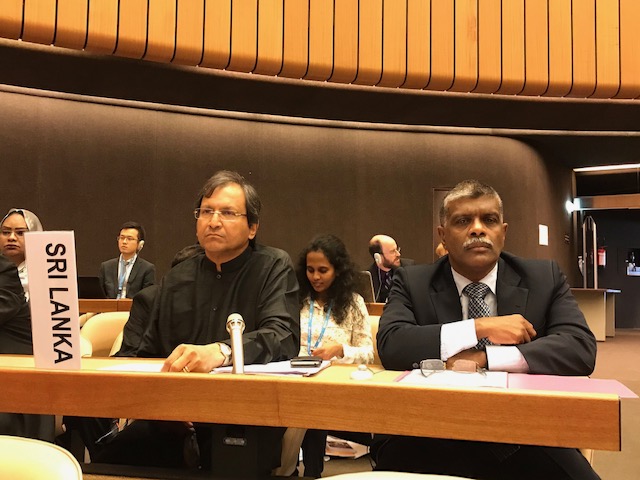 |
| Photograph: @BanClusterBombs |
Sri Lanka’s ambassador to the United Nations maintained that security forces “never” deployed cluster munitions during the island’s armed conflict, whilst stating his government was currently reviewing the process of acceding to the convention banning their use in Geneva today.
Ravinatha Aryasinha told the Seventh Meeting of States Parties to the Convention on Cluster Munitions that,
“Sri Lanka has consistently maintained that cluster munitions were never used by Sri Lanka’s security forces during the conflict, and that they will never be used in the future”.
His statement echoes comments made by previous Sri Lankan leaders despite evidence of their widespread use, particular during a military offensive in 2009 that killed tens of thousands of Tamils. Leaked photos obtained by the Guardian last year showed demining teams excavating cluster munitions from Kilinochchi and Chalai in Mullaitivu, sites of heavy bombardment by Sri Lankan forces during the armed conflict. Though the Halo Trust did not comment on the photographs, it confirmed to the Guardian that it had recovered a total of 42 cluster munitions in several sites around the Tamil North-East during de-mining work in 2011 and 2012.
 Deminers unearth a RBK-500 AO-2.5RT cluster bomb near Chalai. Photograph: The Guardian/Together Against Genocide |
Mr Aryasinha went on to state that “agreement has been reached, in principle, for Sri Lanka to accede to the Convention on Cluster Munitions”.
However he added “internal processes pertaining to requirements necessary for giving effect to the provisions of the Convention are currently under discussion” and declined to set a date for when Sri Lanka would accede to the convention.
“Sri Lanka hopes to deposit the instrument of accession to the CCM in the very near future,” he concluded.
See the full text of his speech here.
Also see more in our feature: Leaked photos confirm cluster bomb use in Sri Lanka (19 Jun 2016)
